- Home
- Services
- SEO Simplified
- How to do Keyword Research Like a Pro: A Comprehensive Guide
- Complete Guide to On-Page SEO
- Latest Off-Page SEO Techniques
- The Ultimate Technical SEO Checklist
- SEO Analyst
- Project Management
- Content Marketing
- Social Media Marketing
- Web Hosting
- Search Engine Marketing
- WordPress
- SEO Tools
- Affiliate Marketing
- Email Marketing
- Local SEO
- CRMs
- Landing Pages
- SEO Store
- Best SEO Tools
- Blog
- About
- Contact
Introduction to Keyword Research
Keyword research is the process of finding out which keywords are most relevant to a website or product that you are promoting. It can be done by using tools such as Google Adwords Keyword Tool and keyword planner, or by using other tools such as SEMrush, Ahrefs, and Moz.

It is the first step towards successful SEO. Understanding what keywords a website should rank for is key to its success.
This article will introduce how to do effective keyword research and provide tips on how to find good keywords with low competition.
The Importance of Keyword Analysis
A quick question! You own a restaurant, business is doing well and you’re thinking of taking things to the next step, would you design a website with pages about furniture? The answer here is a clear “NO”, since you are in the business of selling food. Thus pages about the popular dishes in your city/country will make more sense.
Keyword analysis is the process of analyzing a list of keywords for a specific topic or niche. This is done in order to find out which words are most relevant and popular in that field.
Keyword analysis is an important step before writing content because it helps writers know what their audience wants to read. It also helps them create content that is more engaging and interesting to read.
This can be done by using free online tools like Google Keyword Planner, Keyword Surfer or MOZ Keyword Tool. These tools provide information about the number of searches on Google, how competitive they are, and how much they cost on Adwords.
Understanding Ranking Difficulty
Understanding the ranking difficulty of a keyword is crucial for any SEO campaign. The higher the ranking difficulty, the more difficult it will be to rank for that keyword.
The following factors affect the ranking difficulty of a keyword:
Domain authority and page authority (DA/PA)
Domain authority and page authority are two metrics that are used to measure the relevance of a website. Domain Authority is a score from 1-100, with 100 being the most authoritative domain. Page Authority is a score from 1-100, with 100 being the most authoritative page within a domain. The backlink profile of a website is the main metric used to compute the DA/PA.
For a new website with low DA/PA, always look for keywords whereby the ranking pages have DA/PA of less than 20 preferably. This isn’t to say that you can’t or shouldn’t target keywords with DA/PA of over 20, because Domain Authority and Page Authority are not Google Metrics, however the correlation between keywords and DA/PA is too positive to ignore.
The higher the DA/PA scores, the more likely it is that you will rank well in Google’s search engine results pages (SERPs).
Search volume and quality of competing pages
The more search volume a keyword has, the more traffic you will receive if you manage to rank well. For a new website with low domain authority, keywords with search volume of 200 to 500 are good starting points.
Always browse through the SERP and analyze the ranking pages (since they are your competitors), then try to design content that is at least 10X better and a page that has great UX.
How To Do Keyword Research Using Ahrefs (Paid Tool)
Having understood ranking difficulty, let’s see how to find those good keywords for your business using Ahrefs.
Ahrefs like most good SEO tools is a powerful tool to find keywords that are not only relevant but also have high search volumes. It can also help you analyze your competitor’s backlinks, identify their target keywords and find out what they are doing in terms of content marketing.
#Step 1: Identify the broad keywords in your niche. Let’s take the betting niche as an example (quick disclaimer: we do not encourage betting in any form)
#Step 2: Think of other relevant keywords to the broad keyword that are popular in the niche. Using the example above, we have : best bookmakers, football betting, tennis betting etc
PRO TIP: Always analyze keywords in batch when using Ahrefs, in order to consume less credits (avoid analyzing single keywords)
#Step 3: Log into your Ahrefs account, click on the keyword explorer section, paste these keywords into the tool (separate each keyword with a comma or add each on a new line, and do not forget to set the target geo – in our case we set it to UK, but you should choose based on your location to have accurate data), then hit the search button
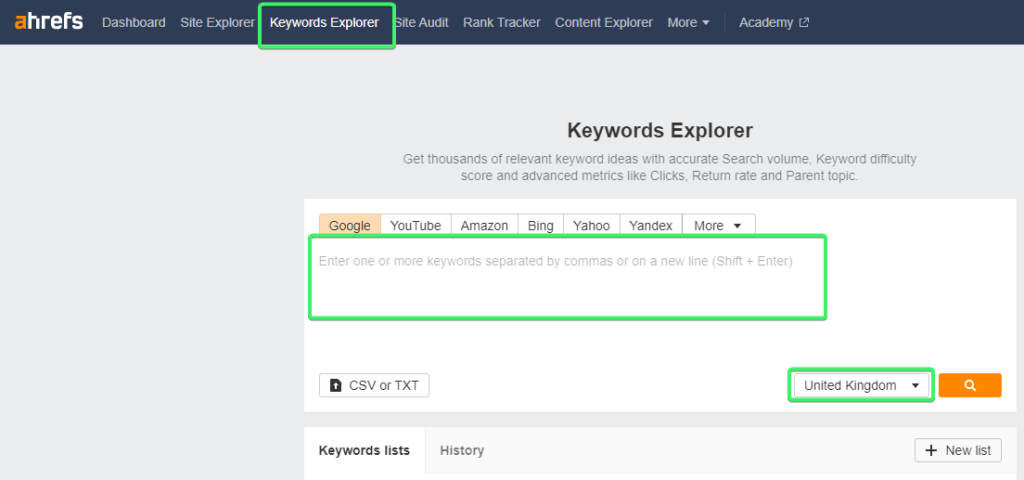
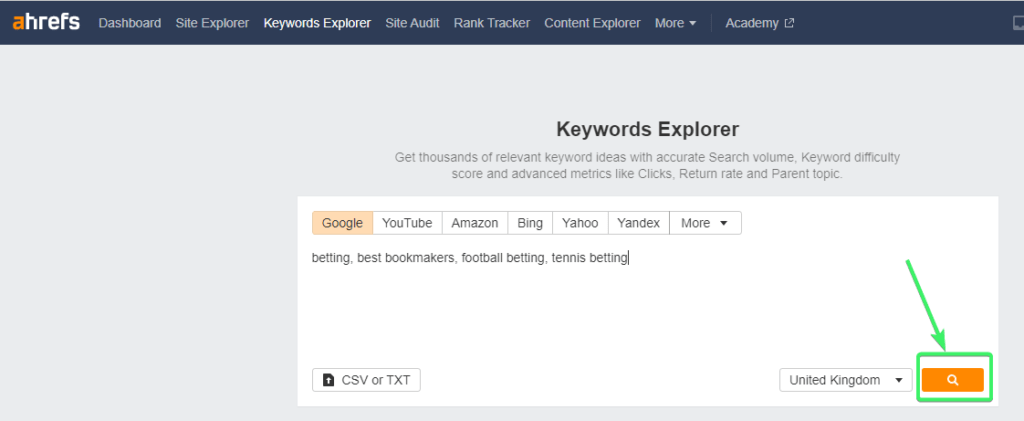
This is the initial result

To have more keywords to play with, click on the “search suggestion” tab
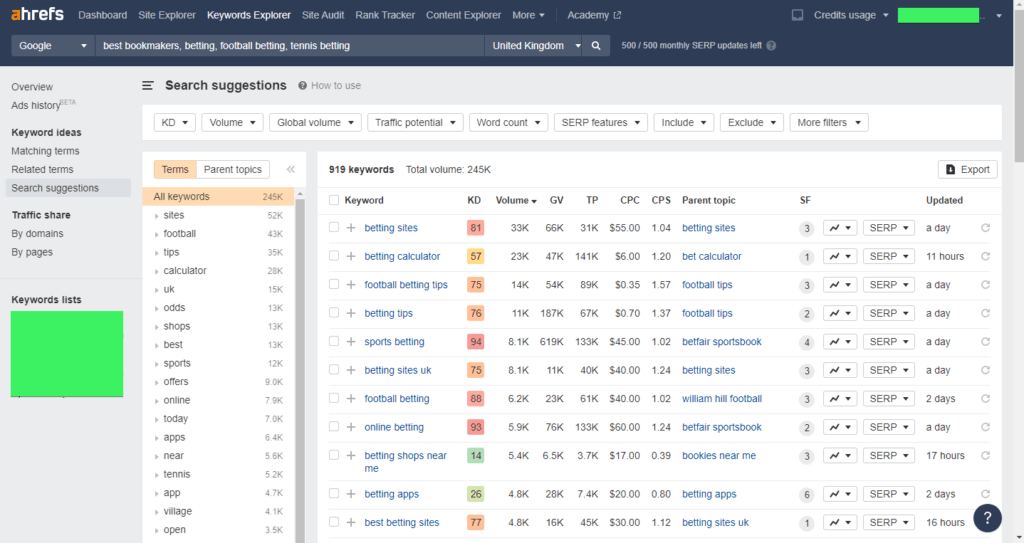
#Step 4: Use the filters to filter the keywords by ranking difficulty (RD), search volume
Set the Keyword Difficulty to between 0 and 20

Next, set the search volume to minimum 100
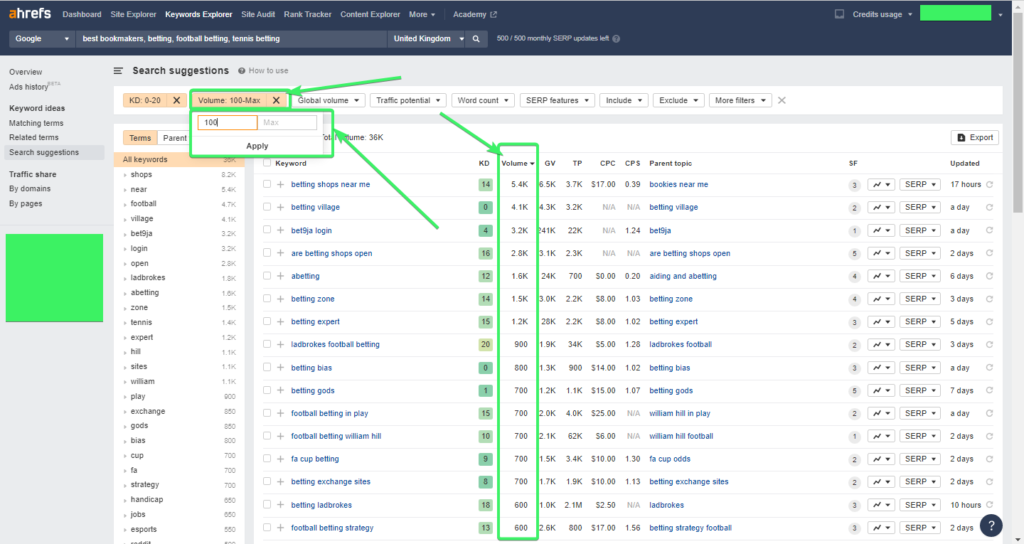
There you have very good low competition keywords to work with. But, as stated earlier, always review and analyze the ranking pages and try to greater better, more in-depth and helpful content following Google’s guidelines so you can outrank your competitors.
How To Do Keyword Research Using Free Tools (MOZ)
Ahref is a paid tool and may not be affordable for everyone, especially those just starting their business. So; let’s look how to do keyword research using free SEO keyword tools – MOZ and Keywordsurfer.
Head over to https://moz.com/ and sign up for a free account

Once done, the interface will look as follows (make sure to set the geo properly – in this case we set to UK). Unlike Ahref, here have to do one keyword at a time.
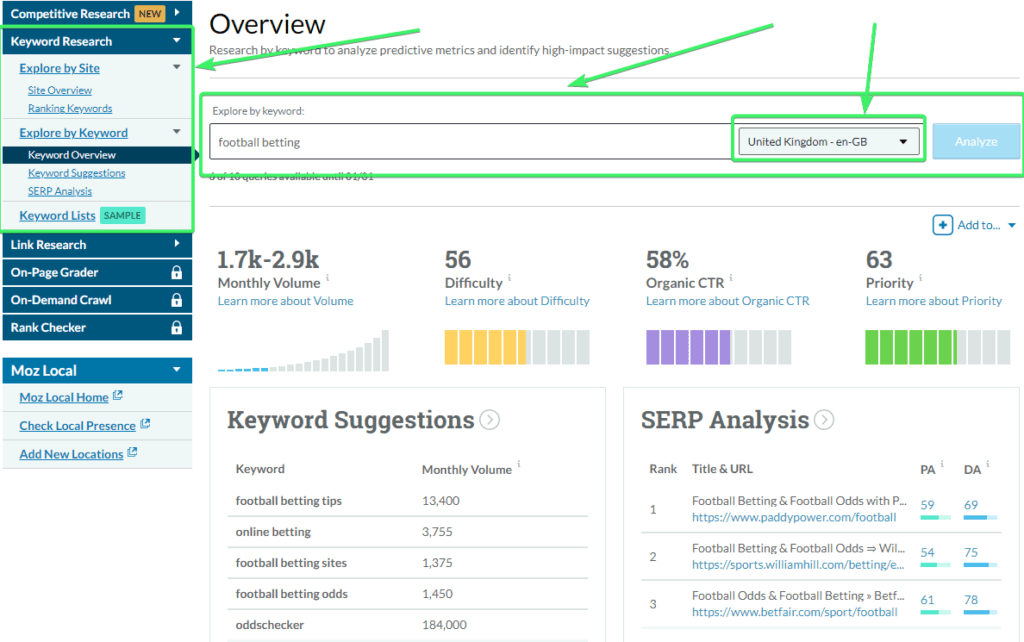
MOZ gives us the ranking difficulty, the search volume and even the organic click-through rate of the keyword
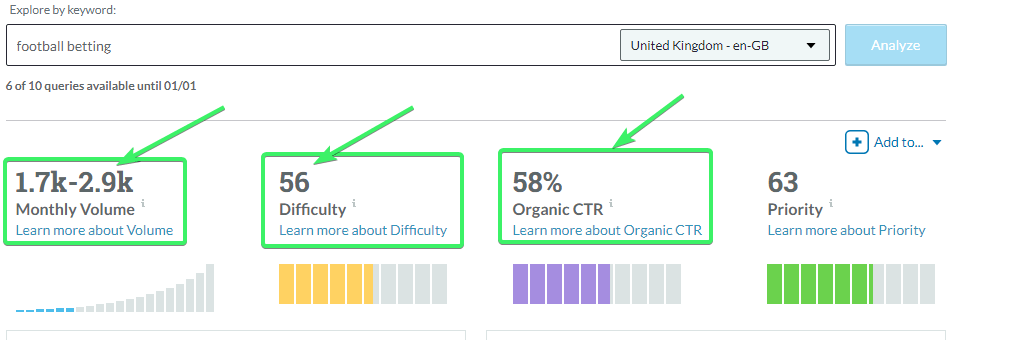
At the bottom; you can check the related keywords and identify the ones that are less competitive follow the key criteria we discussed
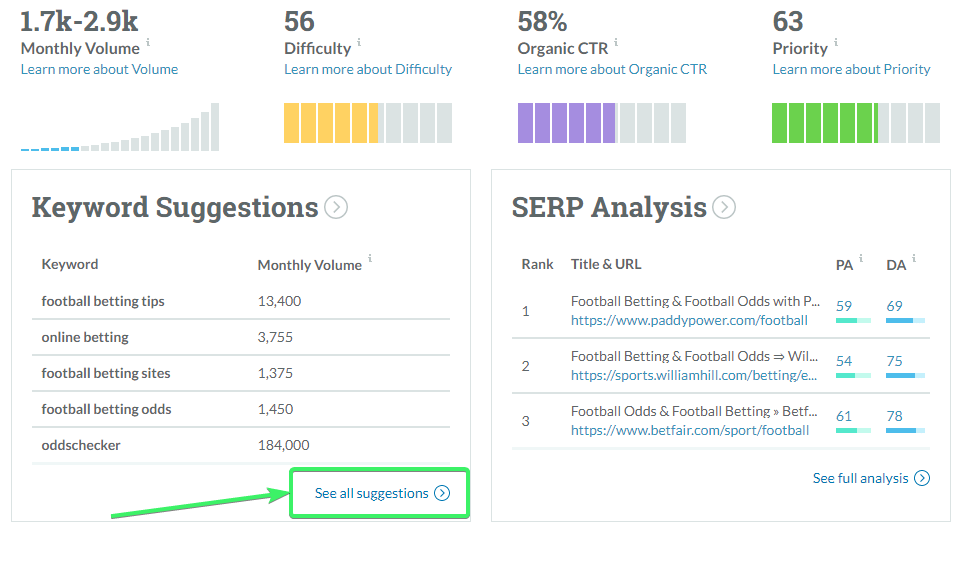
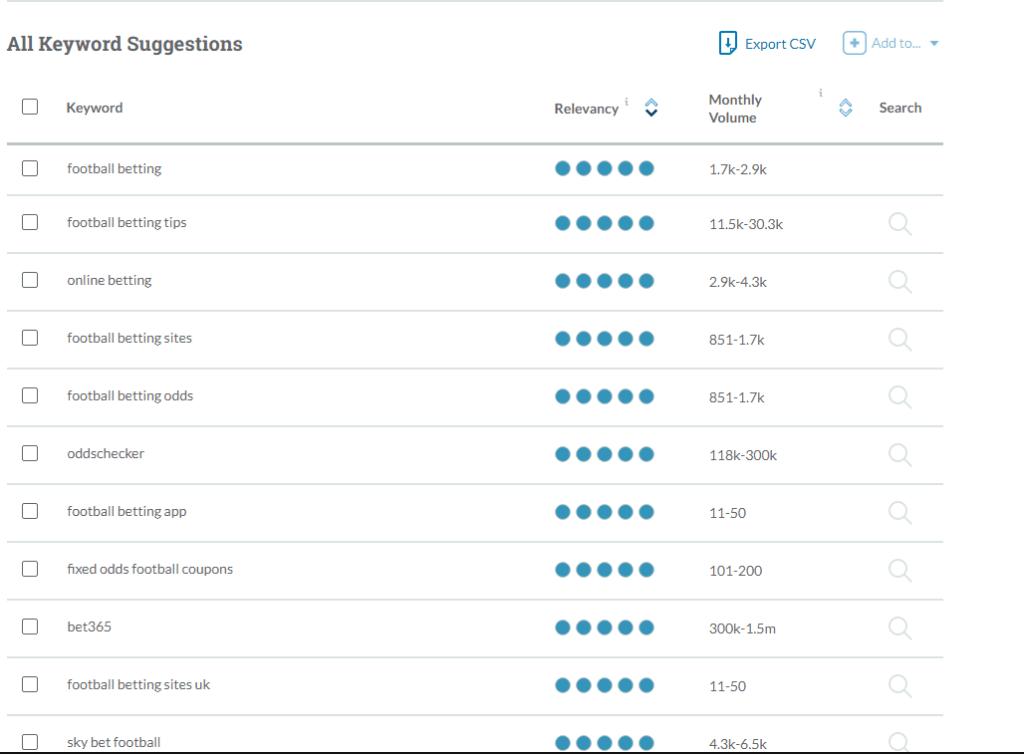
Conclusion
In today’s world, keywords are one of the most important aspects of marketing. Keywords play a huge role in your content’s visibility and its ability to rank on search engines like Google.
It’s important that keyword research is conducted before publishing any content. The success of your overall SEO strategy will greatly depend on your ability to find the right keywords to use.

